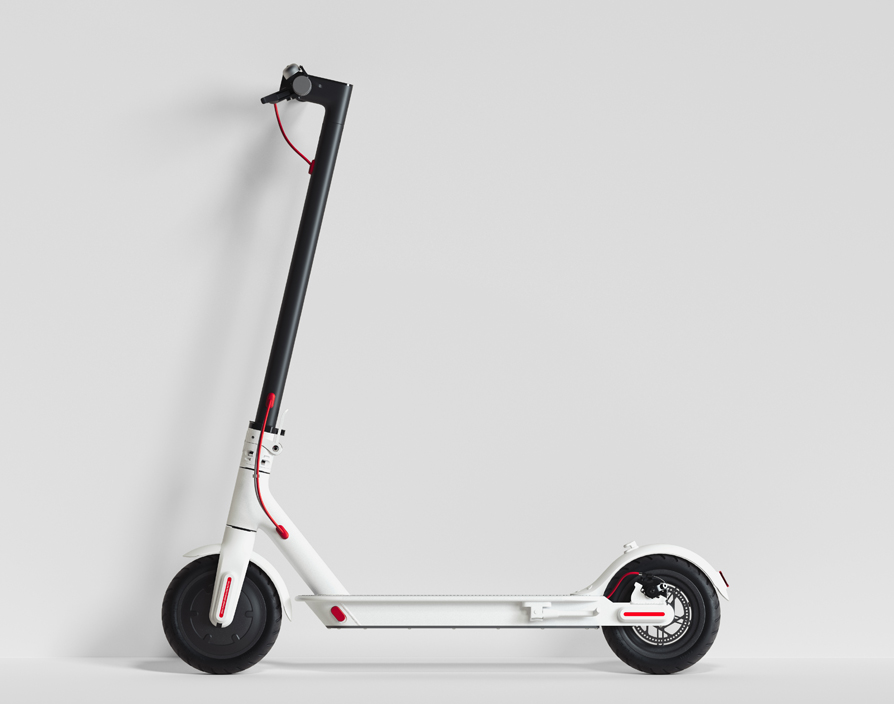Lawrence Leuschner needed a break after more than a decade of spearheading the growth of reBuy. Under his leadership the pre-owned electronics market he’d launched back in 2004 had become one of the leading trading spots in Europe. However, by 2017 he needed to do something else. “[So] I took a break and I travelled around the world,” Lauschner says. The trip would prove to be an eye-opening experience. “In the last part of my trip I saw [e-scooters] in San Diego and how they transformed mobility in the city,” Lauschner remembers.
At the time, e-scooter startups like Bird and Lime had begun to make waves across cities on the US east coast. Offering a model where commuters could easily pick up what is essentially a hot rod kick-bike and pay a few cents per minute of usage before docking the vehicle at their destination, these companies pledged to transform traffic, reduce pollution and simply make it easier for people to get around.
Seeing these small bikes swoosh by gave Leuschner an epiphany. “I thought about how this could transform European cities even faster than American cities,” he says. The way he saw it, European cities had far superior infrastructure and density that would make these services ideal for the continent. “Also we’ve been forced by the European Union to make cities more green and we have the first cities that are actually going green so they avoid people from driving into the city,” Leuschner says. “They really try to promote an alternative transportation as an alternative to cars.”
Believing he was the guy to do it, he gathered a top notch founding team and launched TIER in 2018. Since then the startup has already rolled out in cities across Germany, France, Spain, Portugal and Austria as well as raising an impressive €25m series A round led by Northzone, the early-stage VC investor who was one of the early Spotify backers.
The launch of TIER Mobility highlights the opportunity for e-scooters to ease transportation bottlenecks and make a significant profit along the way. No wonder then that it’s not the only company to try to do so. Over the past six months, American companies Bird and Lime have both started to set up shop across Europe. And, just like TIER, these scaleups have raised significant funding – Lime raised a $310m series D in February 2019 and Bird had a $300m series C injected into it in June 2018.
Francesca Lavey, head of innovation programmes at Plexal, the innovation centre that Bird is a member of, isn’t surprised by the interest in e-scooters. “Cities are desirable places to live in, which is why people are flocking to them,” she says. However, Lavey argues that as more people move to them, the risk for traffic congestion skyrockets as does the need for new transportation services. And that’s where e-scooters come in. “They provide a solution for the first and last mile challenge, giving people an alternative to the car for those awkward distances that are slightly too far to walk but aren’t served well by public transport,” she explains.
Although, while many European cities seem willing to trial the solution, UK consumers won’t see e-scooters on public streets and sidewalks anytime soon. “Electric scooters aren’t currently allowed to be ridden on public property in the UK, but can be used on private property,” says Jaanaki Momaya, UK general manager of Lime. Indeed, the UK government classifies them as personal light electric vehicles, or PLEVs, which means that people using them on public pavements or roads risk arrests and a fine of up to £75. But these companies are hoping this might change soon. “[We’re] working closely with government regulators to see if this can be changed, allowing UK residents to benefit from the scooters which are easy, convenient and affordable,” she continues.
Both companies have so far gone some way to get into the market and showcase how useful they are. Lime launched its electronic bike – not an e-scooter – scheme in London in the end of 2018 and so far has over 1,000 bikes across the city. And in November last year, Bird kicked off a limited three-week trial confined to the Olympic Park.
However, it’s not just the regulations that these companies have to overcome before setting up shop in Britain. They also have to find a way to sway public opinion, which can prove more difficult than expected. The arrival of the electronic kick bikes sparked protests in San Francisco in June 2018 after people disapproved of their streets getting swarmed by e-scooters and considered the city’s regulations to be too lenient. To showcase their dislike, protestors piled their own scooters high on the street and prevented the shuttles driving Google employees to work from moving. When it was pointed out that Google actually didn’t have an e-scooter scheme, the protestors replied that they also protested tech companies in general.
It would be easy to laugh away this as an isolated incident if it wasn’t for the fact that e-scooter startups have faced multiple backlashes around the world. In January 2019, the city of Columbia, South Carolina, issued a one-year ban on e-scooters to give it time to consider the effects of the vehicles on their streets. Moreover, in early 2019, Lime pulled its operations from Switzerland after reports of the vehicles braking unexpectedly, leaving several people injured. In December 2018, a San Diego woman sued Bird because she hurt herself in a similar incident.
Given reports like these, it’s understandable why some may be hesitant to see e-scooters on UK streets. “The reality is that there are people who don’t like it,” says Paul Murphy, partner at Northzone. Still, while believing these doubts should be taken seriously, he believes these pain points are worth overcoming to free up space from parked cars, remove congestion, reduce pollution and make life easier for people in cities like London. “When bikes started invading [London] there were massive rows [between] drivers and bikes to the point where you would have fighting in the street,” he says. “There was some of that stuff happening today. So whenever you have that sort of shift that’s changing certain behaviour. There will be some learning. People have to start to adapt. Other commuters and other forms of transport would have to adapt. Ultimately, we think that the price for the city is worth it.”
And while they may certainly make an impact, e-scooters aren’t the only ways entrepreneurs aim to change transport. From autonomous vehicles to a seemingly never-ending line of new travelling apps, tech startups aim to transform the way we go from A to Z forever. “One thing is certain, it’s going to be an interesting time,” concludes Murphy.![]()
Share via:


















































